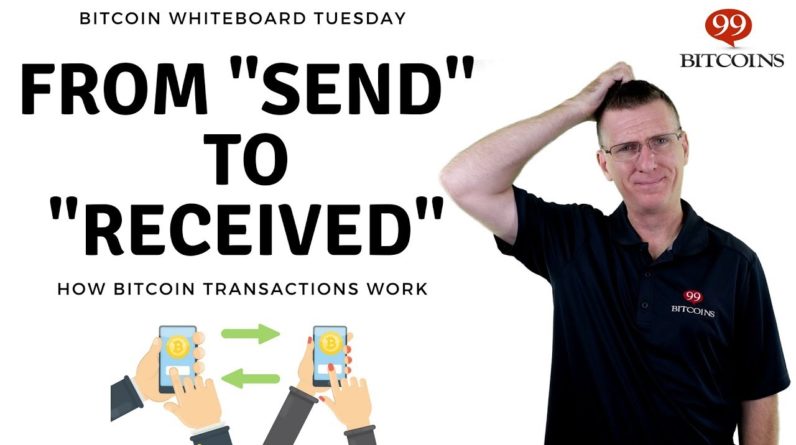
– [Narrator] Over $150 billion. In three days, that's how much the world's 15 largest cryptocurrencies
lost in market value. It's because of the Crypto
Exchange platform FTX, which is behind this token, named FTT. On November 6th, the
token's value began to fall, losing more than 80% of its
worth in the span of 72 hours. Once seen as a survivor
in a struggling market, the fall of FTX has sent shockwaves through the cryptocurrency industry. So, what went wrong? FTX is the brainchild
of Sam Bankman-Fried. He's commonly known as
SBF on social media. He's been previously hailed as a savior of the crypto industry. – You were called the JP Morgan of crypto. – [Sam] Yep. – Does that bother you or not? – It doesn't bother me too much.
– [Narrator] Bankman-Fried founded the quantitative trading firm
Alameda Research in 2017. Two years later, he started
FTX, an exchange platform for buying or selling cryptocurrencies. Right now, he's the majority
owner of both firms. – That kinda aroused some
skepticism among industry players and traders, investors, stakeholders, that there could be some
sort of conflict of interest in terms of whether research was getting preferential treatment on FTX, vice versa. But the official narrative
that SBF gave in the past is that the two companies
are separate entities. – [Narrator] After its launch, FTX attracted major
investments from Silicon Valley and Wall Street. – Yeah, we'd raised a few billion dollars over the course of the last couple years and we're a profitable business. – [Narrator] It grew
into the fourth largest cryptocurrency exchange
for derivatives trading.
Celebrities promoted the platform in ads. – I'm getting into crypto with FTX. You in? – It's FTX. It's a safe and easy
way to get into crypto. – I don't think so. – [Narrator] FTX was gaining steam, and in the process, often
tussled with Binance, the world's largest
crypto exchange by volume. – When FTX was getting started,
Binance invested in FTX and it was one of the crypto
exchange's earliest investors. But FTX, as we know, grew really rapidly and became a very
substantial rival to Binance. – [Narrator] As FTX grew in the industry, Bankman-Fried furthered his
reputation as a Crypto savior, when digital asset prices
collapsed earlier this year. – It's not fair to customers. – [Narrator] He bailed out firms, spending about a billion dollars. – It's okay to do a deal
that is moderately bad in bailing out a place. – [Narrator] But that image didn't last.
On November 2nd, CoinDesk
published a report based on a leaked Alameda balance sheet. According to the leaked
data, Alameda claimed it had over 14 billion in assets
at the end of June, but most of that was FTX's tokens. Alameda CEO Caroline Ellison tweeted that the balance sheet wasn't complete. – Caroline also said
its financial situation is under control, the
company is doing well. However, it seems like the market just didn't really buy that, and then traders continue
to withdraw from FTX. – [Narrator] FTX and
Alameda did not respond to a request for comment. Things escalated on November 6th, when Binance said it would offload hundreds of millions of dollars of FTT. Binance did not respond
to a request for comment.

The announcement sparked mass withdrawals. That day, FTX processed $4
billion of transactions, many times the normal amount for a day. Some got backlogged, which
sparked demand for more. By November 7th, that number
ballooned to $6 billion. On the 8th, a day later,
FTX's finances were in crisis. Binance stepped in and said
it would buy the company. It seemed like FTX might have
solved its liquidity problem. But on the 9th, Binance backed out of the non-binding acquisition. The next day, The
Journal reported that FTX used money from customers
to fund risky bets made by Alameda. – It's a shocking revelation
for a lot of people in the industry, because even though there
has been a lot of speculation about FTX and Alameda research
being joined at the hip, nobody could have foreseen
that SBF was willing to transfer billions of customer funds at his crypto exchange to
help his crypto trading firm.
– [Narrator] The Securities
and Exchange Commission and Justice Department
are investigating FTX, according to a person
familiar with the matter. – This is not like the New
York Stock Exchange or Nasdaq. They take people's money,
they borrow against it. It's not much disclosure. And then they trade
against their customers. – [Narrator] A spokesperson
for the Justice Department declined to comment. Bankman-Fried told investors that FTX couldn't cover withdrawals
since its collateral was dropping in value and
couldn't be liquidated, according to people
familiar with the matter.
On the 11th, Bankman-Fried resigned as CEO and FTX and Alameda filed for bankruptcy. Afterwards, FTX said it was
probing a potential hack. More than 370 million
worth of crypto funds appeared to be missing, according to crypto
analytics firm Elliptic. On the 12th, The Journal
reported that Alameda and FTX executives knew that FTX had lent its customers money to Alameda. – So a lot of retail traders
and investors I've talked to are feeling desperate or frustrated. The majority of the people in the industry could not have seen this coming because FTX is such a dominant player. – [Narrator] The fallout
has led other companies to tout their reserves and
call for more transparency in the industry. As of November 11th, according
to the bankruptcy filing, FTX is estimation of their liabilities would make it the largest
crypto related bankruptcy ever filed..




